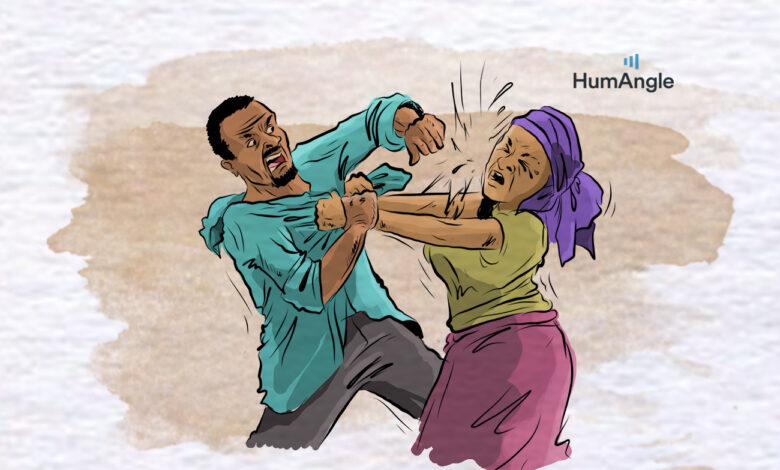Nigeria’s Plateau State Records 288 Domestic Violence Cases In 6 Months
The National Human Rights Commission (NHRC) confirmed that there had been a marked increase in the number of domestic violence cases reported across Plateau State, North-central Nigeria, compared to what the situation was two years ago.

The National Human Rights Commission (NHRC) says Plateau State, North-central Nigeria, recorded about 288 domestic violence cases between Jan. and May 2022.
Grace Pam, the Plateau State Coordinator of the NHRC, confirmed that there had been a sharp increase in the number of domestic violence cases reported at the NHRC office in Jos, the capital, compared to the situation two years ago.
Pam pointed out that “factors like unemployment, cultural beliefs, substance abuse, witnessing family violence as a child, having low self-esteem, and a slow and ineffective legal process were worsening the situation”.
A Non-governmental Organisation (NGO) in the state said it also received seven to 10 reports of domestic and gender-based violence (GBV) in a week.
Funmilayo Oloyede, the founder of Christian Women for Excellence and Empowerment in Nigeria Society (CWEENS), said these incidents occur between intimate partners.
“There are times that one of the partners is drunk. These things are real, and the people tolerate them because of stigmatisation, which has become a norm in society. So, people feel it is normal and keep silent about it,” Oloyede said.
She cautioned against religious and cultural teachings that subject people to stay in abusive relationships because it sends many people to early graves.
Attitude towards domestic violence in Nigeria
According to the 2018 National Demographic Health Survey (NHDS), 33 per cent of women aged 15 – 49 in Nigeria have experienced physical and sexual violence. Asides from that, other forms of violence reported by Nigerian women include; socio-economic and psychological violence.
The survey also assessed respondents’ attitudes towards wife-beating, and 28 per cent of women believe that a husband is justified in beating his wife if five specified circumstances like burning the food, arguing with the husband, going out without permission, neglecting the children, and refusing sexual intercourse occurs. Overall, men were less likely to justify wife-beating in those circumstances.
Nigerian President Muhammadu Buhari, in his Democracy Day speech on June 12, 2020, highlighted the government’s determination to fight GBV using the law and awareness creation.
However, HumAngle has reported how the country is still witnessing more recurring cases of GBV despite these laws.
Support Our Journalism
There are millions of ordinary people affected by conflict in Africa whose stories are missing in the mainstream media. HumAngle is determined to tell those challenging and under-reported stories, hoping that the people impacted by these conflicts will find the safety and security they deserve.
To ensure that we continue to provide public service coverage, we have a small favour to ask you. We want you to be part of our journalistic endeavour by contributing a token to us.
Your donation will further promote a robust, free, and independent media.
Donate HereStay Closer To The Stories That Matter




